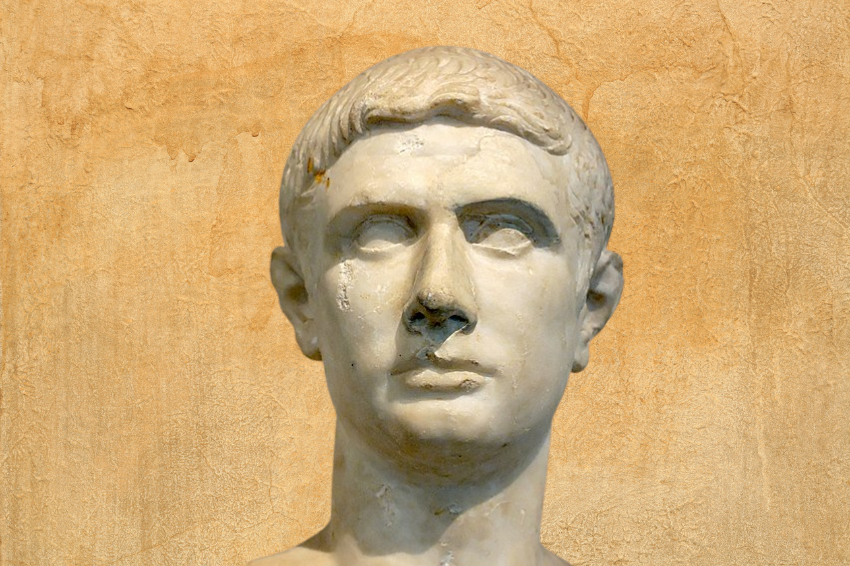The story of Marcus Junius Brutus is a tale that is closely linked to both the themes of loyalty and betrayal as a plot of history that gives the theme of a man torn between duty and greed. Brutus was famously cited in Shakespeare’s historical play as ‘the last of the Romans’ and was also a man who respected the tyrant to the bone, he played a key role in the assassination of Julius Caesar and thus changed the face of the Republic to become the Empire. This work is not only a biography of the assassination of a dictator but a conflict of character and motive behind one of the most famous acts of betrayal in history.

Early Life and Heritage
While in his early life, he is primarily known as Marcus Junius Brutus, he was born in the year 85 BC in the city of Rome and from the noble lineage. His father named Marcus Junius Brutus was cruelly murdered in 77 BC, alleged to have had hand in conspiracy against the Sulla. This is because during the childhood of Brutus, both he and his mother were compelled to become refugees. He had a mother named Servilia and even though it is argued that Brutus was Caesar’s son, Caesar was his lover. These aspects of political realism and loyalty to family would later define Brutus’ character as he grew older.
Brutus had a good formative period in his early years, in learning Greek and Roman culture. He grown up under the supervision of some of the most renowned scholars of the time: the philosopher Philo of Larissa and the historian Poseidonius. These Disneyland experiences gave him early lessons about the tenets which were found in Stoicism that centered on virtues, responsibilities as well as practical reason. These principles would guide his behaviors and reasons up to the later decades of his existence.
Rising to Prominence
The young Brutus pursued a career in public service when he decided to return to Rome after Sulla’s defeat. It is regarded as his integrity and concern for republican values that distinguished him in the new position. For another, Brutus was governor of Cisalpine Gaul around 44 BC and this position gave him both the experience and power he needed.
In the early part of his political career, Brutus was a loyal Roman citizen and a Republican. As for politics he was involved in the following political events: Crassus was a legate under Gaius Antonius Hybrida in Macedonia and he participated in the suppression of a slave revolt led by Spartacus in 71 BC. Nevertheless, it was his association with Julius Caesar that would prove to be the central theme of the narrative of his life and therefore his fate.
The Friendship and Tension with Julius Caesar
The betrayal of Julius Caesar is the most powerful example in the story, moreover, Brutus, who once considered Julius Caesar his good friend, was the one who conspired against him. Although Caesar considered himself a supporter of the Roman Republic, his friendship with Brutus was somewhat ambiguous. Caesar knew Brutus was a resourceful man by looking at him, and so he made him his son, which was probably a political strategy. Still, this friendship had complications because Brutus had a principle and rejection of Caesar and his desire for power.
What Brutus suffers from is an example of the internal conflict of the question of the relationship of public and private loyalty. He respected Caesar very much and considered himself still friendly with him, but he could not accept Caesar’s lust for power and granted authority in the Republic. It is believed that this reached a climax where Caesar was on the way to making the government completely autocratic.
The Conspiracy and Assassination of Julius Caesar
Brutus transforms as a character when he joins forces with others to create a plot against Caesar. Gaius Cassius Longinus took charge in organizing the plot to remove Caesar as leader because he saw Caesar as a tyrant that threatened the return of the republic. It was very significant that Brutus was part of the group since such an esteemed man will help the cause gain credence. Though he never gave a personal disservice to Caesar, Brutus gave his consent to kill Caesar since it was for the betterment of the Republic.
In March 44 BC, Brutus was one of the main planners and executants of the assassination of Julius Caesar. His involvement was more than a political symbolism; it was he who struck the first blow that killed Caesar, thus showing what he was willing to do for the republicans and their own internal conflict. In the early stages Brutus tried to offer what he could about the republican cause as justification for the murder, but the act was seen and treated as a betrayal which haunted Brutus for the rest of his life.
The Aftermath and Civil War
This move did not bring the republic back to life as Brutus had hoped. Instead, it pushed Rome into another civil division aimed at prolonging monarchial power during the civil war. Greater Caesar’s supporters, mainly Mark Antony and Octavian, fought to avenge Caesar’s death on the conspirators. They were not like Cassius who left Rome in anticipation of the conflict and raised an army in Greece.
The subsequent battles, especially the one at Philippi in 42 BC, were painful. The anvil resulted in a victory for the conspirators to some extent but in the end they were defeated by their own forces. In this battle, the final confrontation of the play, Brutus’s resolute qualities were put to work. Thus, he chose to end his life through suicide because he did not want to be caught for dishonor as he knew that all his actions were to protect the values he had adopted.
Legacy and Interpretations
As can be seen, Brutus’ legacy is quite diverse and contains contradictions. For them he is a tragic hero, a man who has to choose between love for his friend and obligations to his country. His murder of Caesar is considered the greatest treason, but at the same time it is the action of a man who tried to save the Roman Republic. His suicide is usually interpreted as the last act of an honorable man who devoted his life to the cause he supported.
In literature and history, Brutus has been a close subject of discussion by people of different opinions. In Julius Caesar Shakespeare’s internal conflict is represented and the tragic aspects of his character are disclosed. Historians have never been in doubt about the reasons for his treachery on Caesar as well as the impacts of his deed on the Roman Republic.
Conclusion
The story of Marcus Junius Brutus is one of the most popular tales of betrayal along with other themes against the backdrop of one of the revolutions in the world’s history. It depicts the life of the man and the way that the struggle of the decision-making process of an individual is portrayed through the turbulent periods of political instability. Today, Brutus’s story stays alive as a matter of the battle between virtue and pragmatism that remains a top theme in human history.
Thus, Brutus is seen as a man who never gives up in the struggle between reason and passion, loyalty and betrayal, justice and tyranny. It is a lesson in how individual actions change history and the fact that such problems have not changed even today.
Frequently Asked Questions: Marcus Junius Brutus
Who was Marcus Junius Brutus?
Marcus Junius Brutus was a Roman senator, philosopher, and one of the key conspirators in the assassination of Julius Caesar. Born in 85 BCE, Brutus is most famous for his role in the plot against Caesar on the Ides of March (March 15) in 44 BCE. His actions have made him a symbol of both patriotism and betrayal.
Why did Brutus betray Julius Caesar?
He dedicated himself to the Roman Republic principles which honored equal distribution of power and public liberties. The appointment of Caesar as Dictator for Life represented in his view an assault on Republic principles because it raised concerns about tyranny. Closeness to Caesar notwithstanding Brutus selected the course of action which he thought supported the Republic through his friend’s betrayal.
Was Brutus really Caesar’s close friend?
Yes, multiple records verify that Brutus maintained a complicated bond with Julius Caesar since their early years. Brutus had received outstanding political support and personal admiration from Caesar who pardoned his previous loyalty to Pompey while Rome battled in civil war. The tight bond established between them made Brutus’s act of treachery against Caesar particularly surprising.
What happened to Brutus after the assassination of Julius Caesar?
After Caesar’s assassination, Brutus and the other conspirators were initially granted amnesty but soon faced strong opposition from Mark Antony and Octavian. Brutus ran away from Rome before he led his armies against Mark Antony and Octavian in the Battle of Philippi during 42 BCE. The loss in battle led Brutus to carry out his death by suicide.
How is Brutus viewed by historians today?
Brutus remains a controversial figure. History continues to debate whether Brutus must be recognized for upholding Republican principles at the cost of his family while others blame him for Republic collapse by initiating an assassin attempt on Caesar. The ethical dilemmas of his choices become recognized as a sad representation of moral contradiction.
What philosophy influenced Marcus Junius Brutus?
Through his adherence to Stoicism Brutus learned to emphasize virtue and reason combined with self-control. His commitments to Roman values about moral duties shaped his thoughts about citizenship obligations which led him to join the conspiracy against Caesar.
What is Brutus’s legacy?
History remembers Marcus Junius Brutus as a pivotal personality who contains the conflicting moral elements of his historical time. Regardless of being known as a political traitor his genuine support for republican ideals defined his motives to participate in Caesar’s assassination. Historians study his narrative because it showcases a perfect demonstration of morality alongside loyalty as well as the significant expenses of political confrontation.


